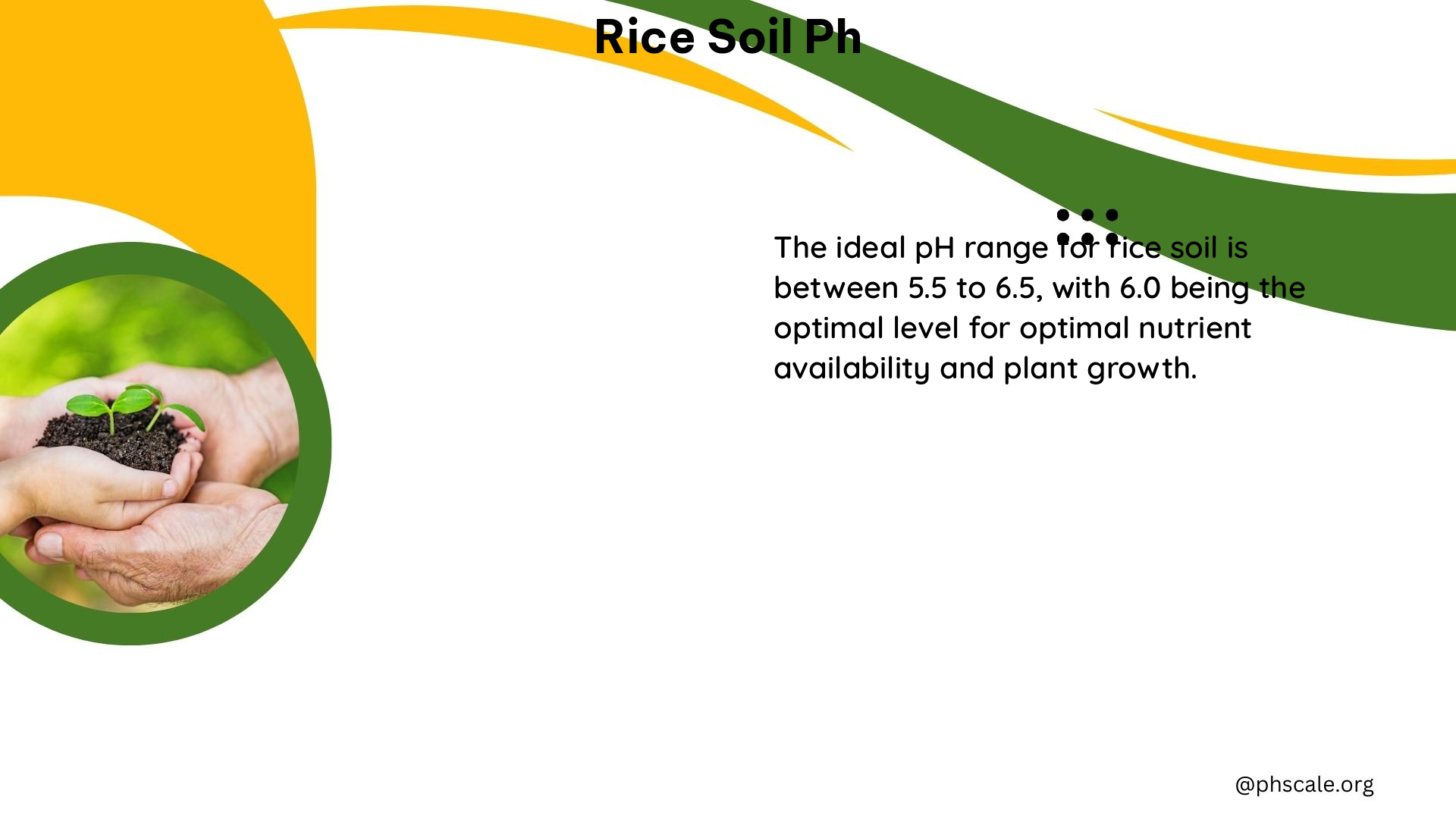The pH of rice soil is a crucial factor in determining the overall health and productivity of rice crops. The optimal pH range for rice growth is between 5.5 and 6.25, which allows for the best balance of nutrient availability and minimizes the negative effects of acidic or alkaline conditions. In this comprehensive blog post, we will explore the various aspects of rice soil pH, including its effects on plant growth, strategies for balancing pH, and potential contaminants and chemicals that can impact soil quality.
Effects of Rainfall on Rice Soil pH
Rainfall can significantly influence the pH of rice soil by altering the chemical equilibria of sulfides and ferrous iron. When soil is submerged, the pH can increase from an original value of 4.5–5.0 to 6.0–7.0 due to the consumption of protons during reduction processes. This increase is closely related to the amount of organic matter present in the soil, as it induces the reduction of oxidized forms of inorganic compounds, notably ferric oxides.
Effects of Acidic Rice Soil on Plant Growth

Acidic rice soil can have several detrimental effects on plant growth:
- Iron Toxicity: Low pH can lead to the formation of toxic levels of ferrous iron, which can be detrimental to rice plants.
- Hydrogen Sulfide: Acidic conditions can result in the formation of hydrogen sulfide, which is also toxic to rice plants.
- Nutrient Availability: Acidic soil can limit the availability of essential nutrients, making it difficult for rice plants to grow optimally.
Balancing Rice Soil pH
To maintain the optimal pH range for rice growth, several strategies can be employed:
- Organic Matter: Adding organic matter such as compost or manure can help reduce the acidity of the soil by increasing the amount of reducing substances.
- Lime Application: Applying lime can help raise the pH of acidic soil, but care must be taken to avoid over-liming, which can lead to alkaline conditions.
- Nutrient Management: Ensuring optimal nutrient levels, particularly nitrogen, can help mitigate the negative effects of acidic or alkaline soil conditions.
Contaminants and Chemicals in Rice Soil
Rice soil can contain various contaminants and chemicals that can impact plant growth and the environment:
- Heavy Metals: Heavy metals like iron, aluminum, and manganese can be present in rice soil, particularly in acidic conditions.
- Salts: Salts can accumulate in rice soil, especially in saline-sodic soils, leading to osmotic and ionic stresses on rice plants.
- Pesticides and Fertilizers: The use of pesticides and fertilizers in rice cultivation can result in the presence of these chemicals in the soil, potentially affecting rice growth and the environment.
Home Remedies and DIY Solutions
In addition to the more technical approaches, there are also some home remedies and DIY solutions that can be used to balance rice soil pH:
- Compost Tea: Using compost tea as a natural fertilizer can help improve soil health and balance pH levels.
- Wood Ash: Adding wood ash to the soil can help raise the pH, but care must be taken to avoid over-liming.
- Crop Rotation: Implementing crop rotation practices can help maintain soil health and balance pH levels naturally.
By understanding the importance of maintaining optimal rice soil pH and implementing the appropriate strategies, rice farmers can ensure the long-term health and productivity of their crops, while also minimizing the environmental impact of their farming practices.
References
- Yu, T.R. (1991). Characteristics of soil acidity of paddy soils in relation to rice growth. In: Wright, R.J., Baligar, V.C., Murrmann, R.P. (eds) Plant-Soil Interactions at Low pH. Developments in Plant and Soil Sciences, vol 45. Springer, Dordrecht. https://doi.org/10.1007/978-94-011-3438-5_12
- Azman et al. (2014). pH, CEC, exchangeable bases (K, Ca, Mg, Al) and Fe of the soil. ResearchGate.
- Huang et al. (2017). Interactive effects of pH, EC and nitrogen on yields and nutrient absorption of rice (Oryza sativa L.). ScienceDirect.
- ResearchGate. (2016). What are the criteria of an ideal rice soil? ResearchGate.
- USDA-ARS. (n.d.). Interactive effects of pH, EC and nitrogen on yields and nutrient absorption of rice (Oryza sativa L.). USDA-ARS.
